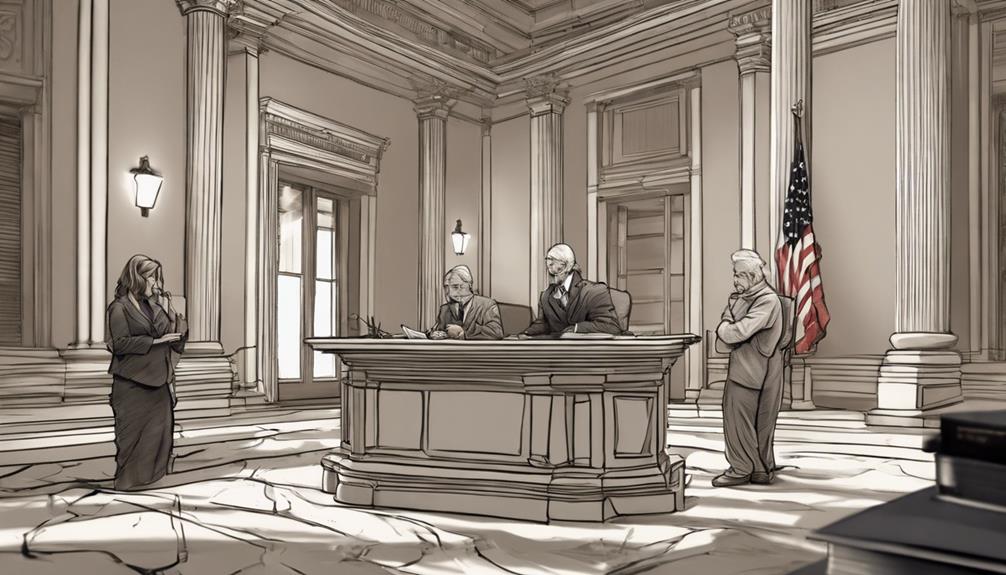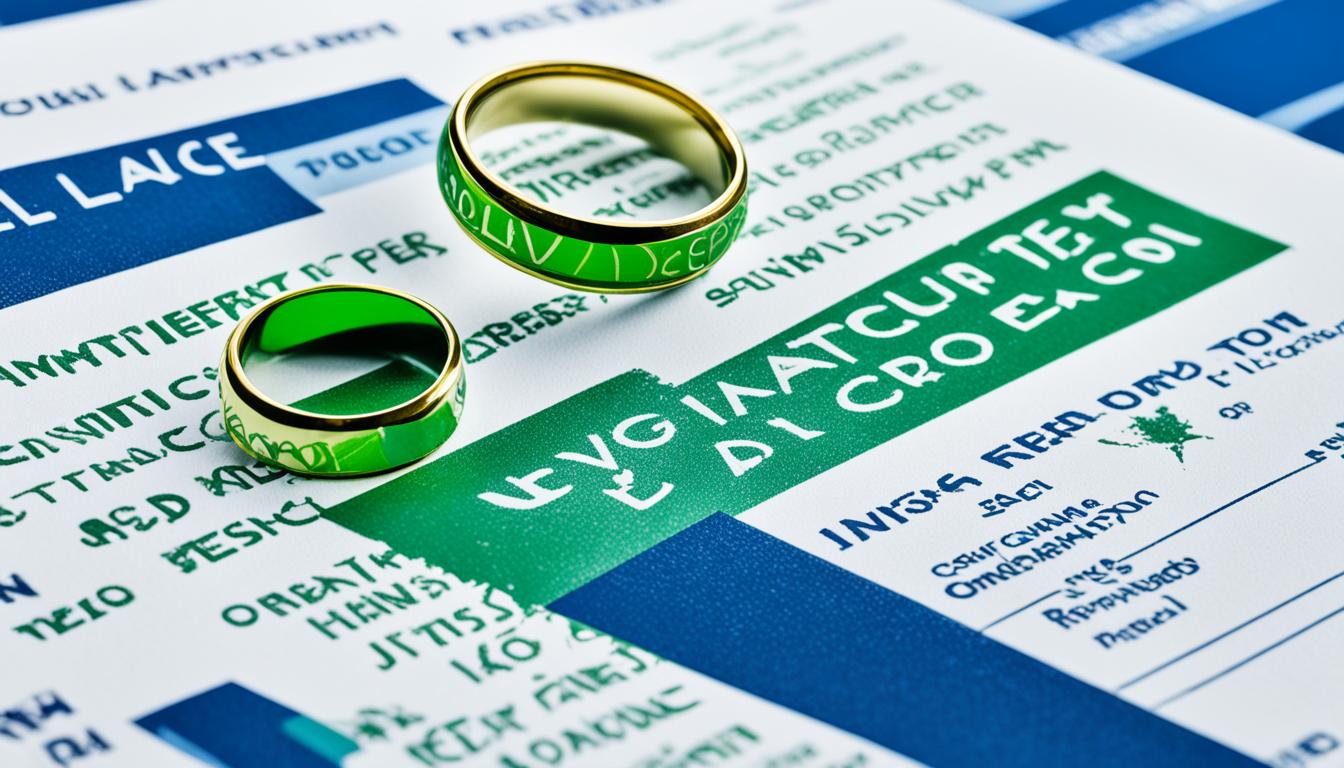Did you know that the term “disposed” holds significant weight in divorce court proceedings? Discover why this word matters and how it can impact legal outcomes. Uncover the secrets behind its importance and why understanding its meaning is crucial in divorce settlements. Dive into the world of legal terminology and gain valuable insight into the significance of this word in courtrooms. Join in on the excitement of unraveling the mysteries of legal jargon and its implications in divorce cases. Explore the depths of legal language and its impact on divorce proceedings. Delve into the fascinating world of divorce court vocabulary and learn how this word can make a difference in legal battles. Uncover the hidden power of this simple term and why it matters in divorce courtrooms. Start your journey into the intriguing realm of legal language and its nuances. Discover why being familiar with this word can give you an advantage in divorce court cases. Explore the captivating world of legal terminology and its impact on legal decisions. Start your exploration today and unlock the secrets of this crucial term in divorce court proceedings!
When it comes to divorce cases, “disposed” refers to the final resolution or conclusion of the proceedings. It signifies that the court has made a final decision and the case is no longer pending.
In this article, we will delve into the meaning of “disposed” in divorce court, shedding light on its various forms and implications. Understanding this term is crucial for individuals navigating the divorce process and seeking closure in their cases.
Key Takeaways:
- The term “disposed” in divorce court refers to the final resolution or conclusion of the case.
- It signifies that the court has made a final decision and the case is no longer pending.
- “Disposed” can take various forms, including a final judgment of divorce, settlement agreement, dismissal of the case, or default judgment.
- The specific meaning of “disposed” depends on the circumstances and agreements made by the parties involved.
- Checking the status of a divorce case is important to know if it has been disposed of and closed.
What Does “Disposed” Mean in Civil Court?
In civil court, the term “disposed” refers to the resolution or outcome of a legal case. When a case is disposed of in civil court, it means that the court has made a decision or taken action to finalize the case.
This can include:
- Judgments for the plaintiff or defendant
- Settlements
- Dismissals
- Summary judgments
- Default judgments
- Voluntary or involuntary dismissals
- Permanent injunctions
- Temporary restraining orders
- Specific performance orders
- Declaratory judgments
- Remanding the case to a lower court
The specific meaning of “disposed” in a civil court case depends on various factors, including the nature of the case, evidence presented, applicable laws, and arguments made by the parties involved.
Outcomes of a Disposed Civil Court Case
Once a case is disposed of, different outcomes are possible depending on the specific circumstances. Some possible outcomes of a disposed civil court case include:
- Awarding damages or monetary compensation to the plaintiff
- Requiring the defendant to comply with certain obligations or perform specific actions
- Issuing an injunction or restraining order to prevent certain behaviors or actions
- Dismissing the case if the court determines that there is no legal basis for the claim
- Ordering a retrial or remanding the case to a lower court
These outcomes are determined by the evidence presented, the strength of the arguments made, and the interpretation of the law by the court. It is important for all parties involved to understand the implications of a disposed civil court case and the potential consequences of the court’s decision.
What Does “Disposed” Mean in Criminal Court?
In criminal court, the term “disposed” holds significant meaning. It refers to the final resolution or outcome of a criminal case, indicating that the case has reached a conclusive end. When a criminal case is disposed of, it means that the court has taken action to resolve the matter, and the case is no longer pending before the court.
The specific meaning of “disposed” in a criminal court case can vary depending on the actions taken by the court and the outcomes of the proceedings. There are several possible outcomes when a criminal case is disposed of, including:
- A guilty plea: When the defendant pleads guilty to the charges they are facing.
- A guilty or not guilty verdict: When the court renders a decision after a trial.
- Dismissal: When the case is dismissed, often due to lack of evidence or procedural errors.
- Nolle prosequi: When the prosecutor decides not to pursue the case further.
- Plea bargain: When there is an agreement between the defendant and the prosecutor to resolve the case with a specific outcome, often a lesser charge.
- Deferred adjudication: When the court delays or postpones the judgment, typically subject to certain conditions.
- Mistrial: When the trial is terminated without a final decision due to a significant error or misconduct.
- Death of the defendant: When the defendant passes away during the course of the case.
When a criminal case is disposed, it is important to note that it does not necessarily imply the defendant’s guilt or innocence. The term signifies that the court has taken action to resolve the case, regardless of the specific outcome.
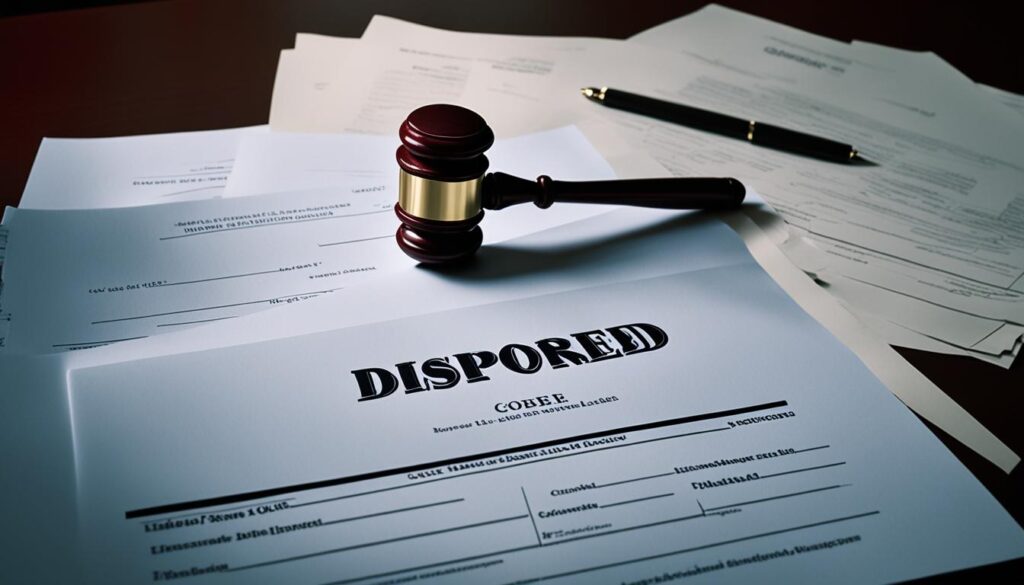
| Outcome | Meaning |
|---|---|
| Guilty Plea | The defendant admits their guilt and accepts charges. |
| Guilty or Not Guilty Verdict | The court makes a decision based on the evidence presented. |
| Dismissal | The case is dismissed due to procedural errors or lack of evidence. |
| Nolle Prosequi | The prosecution decides not to pursue the case further. |
| Plea Bargain | An agreement between the defendant and prosecutor to resolve the case with specific terms. |
| Deferred Adjudication | The court delays the judgment and imposes certain conditions. |
| Mistrial | The trial is terminated without a final decision due to significant errors or misconduct. |
| Death of the Defendant | The defendant passes away during the course of the case. |
What Does “Disposed” Mean in Traffic Violations?
In the context of traffic violations or other minor offenses, the term “disposed” refers to what has happened with the ticket after it was issued. When a traffic violation case is disposed of, it means that a resolution has been reached or a decision has been made regarding the case. The specific meaning of “disposed” in a traffic violation case can vary depending on the actions taken by the court and the outcomes of the proceedings.
After receiving a traffic ticket, there are several possible outcomes for the disposed case:
- Guilty Pleas: The driver admits fault and accepts the consequences, which may include fines, points on their driving record, or traffic school.
- Dismissals: The case is dismissed due to procedural errors, lack of evidence, or other factors.
- Not Guilty Verdicts: The driver is found not guilty of the violation after trial.
- Traffic School/Defensive Driving Courses: In some cases, drivers may have the option to attend traffic school or complete a defensive driving course to avoid points on their record.
- No Contest Pleas: The driver neither admits nor denies guilt but accepts the penalties imposed by the court.
- Cases Continued to a Later Date: The case is postponed or delayed to allow for further investigation or preparation.
- Bench Warrants Issued: If the driver fails to appear in court or comply with the requirements, a bench warrant may be issued for their arrest.
- Amended Charges: The original violation may be reduced or changed to a different offense.
- Trials Pending: The case is awaiting trial in the future.
Each disposition has its own implications and consequences. It is important for individuals facing traffic violations to understand the potential outcomes and make informed decisions regarding their cases.
| Disposition | Description |
|---|---|
| Guilty Pleas | The driver admits fault and accepts the consequences. |
| Dismissals | The case is dismissed due to errors or lack of evidence. |
| Not Guilty Verdicts | The driver is found not guilty after trial. |
| Traffic School/Defensive Driving Courses | Drivers may attend courses to avoid points on their record. |
| No Contest Pleas | The driver accepts penalties without admitting guilt. |
| Cases Continued | The case is postponed or delayed for further investigation. |
| Bench Warrants Issued | Failure to appear may result in a warrant for arrest. |
| Amended Charges | The original violation may be reduced or changed. |
| Trials Pending | The case is awaiting trial in the future. |
Understanding the meaning of “disposed” in traffic violations is essential for individuals facing these charges. By being familiar with the possible dispositions and outcomes, drivers can make informed decisions about how to proceed with their cases and potentially mitigate the impact of the violation on their driving record and insurance premiums.
When Is a Divorce Case Considered “Disposed”?
A divorce case is considered “disposed” when the divorce decree has been signed by a judge and the case is closed. This signifies that the court has reached a final decision regarding the divorce proceedings and the terms of the divorce settlement.
The length of time between an active divorce case and a disposed case can vary depending on the state in which the divorce is filed. It is important to distinguish between a case being disposed with a divorce decree and a case being dismissed, as a disposal signifies that the divorce is finalized, while a dismissal means the case has been thrown out or not properly processed.
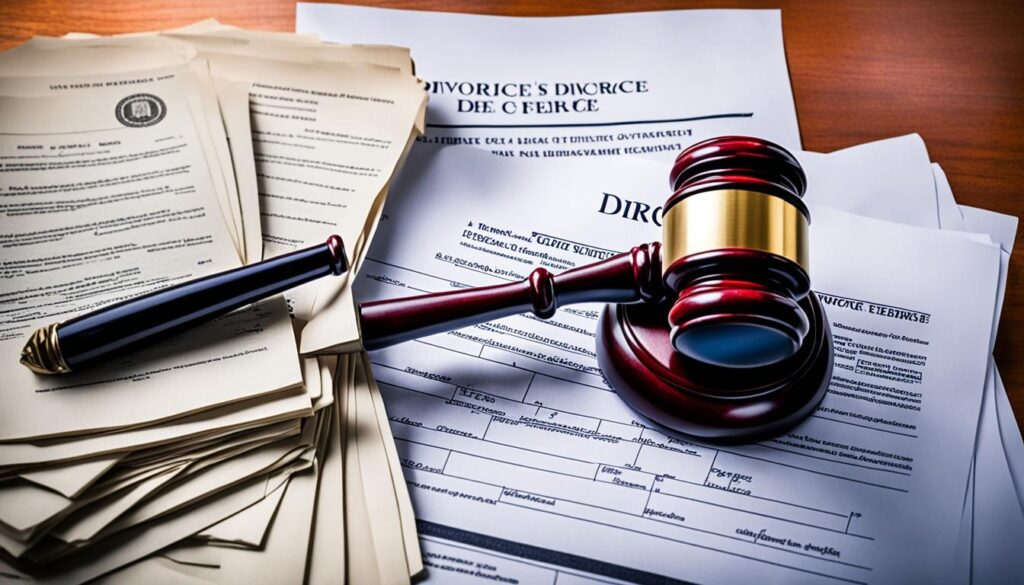
Finalizing a divorce case is a significant milestone for all parties involved. It marks the official end of the legal process and establishes the terms of the divorce settlement, including matters such as property division, child custody, and spousal support.
Obtaining a divorce decree is a crucial step in closing a divorce case. It provides clarity and closure, allowing both parties to move forward with their lives.”
Once a divorce case is disposed of, it is important to keep a copy of the divorce decree as it serves as legal proof of the finalized divorce. This document can be helpful for various purposes, such as changing names, updating financial accounts, or resolving any future disputes that may arise.
It is recommended to consult with an experienced divorce attorney to ensure that all necessary steps are taken to properly finalize a divorce case. They can guide you through the process, ensuring that all relevant documents are filed and all legal requirements are met.
How to Check the Status of a Divorce Case
When going through a divorce, it is natural to want to stay informed about the progress of your case. Checking the status of a divorce case can help you understand where things stand and provide you with peace of mind. There are a few ways you can do this.
Contact Your Divorce Attorney
If you have hired a divorce attorney, they will be the best source of information regarding the status of your case. Reach out to your attorney and ask for an update. They will have access to the necessary documents and court records to provide you with the most accurate information.
Use Online Databases
Many state court systems have online databases where you can search for the status of your divorce case. These databases typically require you to provide specific details such as the case number, date of filing, courthouse location, and names of the parties involved. By entering this information, you can track your case and find out if it has been disposed of or is still pending.
Not all states have online databases, so it is important to check if this option is available in your jurisdiction. If your state does not have an online database, you can consider the following alternatives:
Contact the Courthouse
You can call or visit the courthouse where your divorce case was filed to inquire about the status. The court clerk should be able to provide you with information on whether your case has been disposed of or is still ongoing. Make sure to have your case number and any other relevant details on hand when contacting the courthouse to expedite the process.
Keep Your Address Updated
It is crucial to keep your address updated with the court handling your divorce case. This ensures that you receive any notices or documents related to the finalization of your divorce. Failure to update your address could result in missed notifications, which may impact the progress of your case.
| Methods to Check the Status of a Divorce Case | Pros | Cons |
|---|---|---|
| Contact Your Divorce Attorney | Access to accurate and up-to-date information | Dependent on the availability and responsiveness of your attorney |
| Use Online Databases | Convenient and accessible | Not available in all states |
| Contact the Courthouse | Direct access to court records | Potential delays or long wait times |
![]()
By using these methods, you can stay informed about the status of your divorce case. Remember to be patient, as the legal process can sometimes take time. Keeping yourself updated will help you navigate through the divorce proceedings more confidently.
Understanding Disposed Cases in Family Court
In family court, a disposed case signifies that a judge has reached a decision on the matter at hand or that the case has been resolved in some way. Disposition in family court can take various forms, such as through an agreement between the parties, a ruling by the judge, or dismissal of the case. It is important to understand the meaning of “disposed” in family court in order to navigate the legal system effectively. Unlike civil or criminal court cases, a disposed case in family court does not necessarily mean the case is closed, as family court cases involving ongoing disputes or child custody issues may remain open even after a disposition.

| Outcomes | Explanation |
|---|---|
| Agreement Between Parties | The parties involved in the family court case reach an agreement on certain terms, such as child custody, visitation rights, or property division. |
| Ruling by Judge | The judge presiding over the family court case makes a final decision based on the evidence and arguments presented by the parties. |
| Dismissal of the Case | The court dismisses the case due to legal technicalities, lack of jurisdiction, or other reasons. |
It is important to approach family court cases with a clear understanding of what it means for a case to be disposed. While it may indicate a resolution, the underlying issues in family court cases often require ongoing attention even after a disposition. Parties involved should seek proper legal counsel to fully comprehend the implications of a disposed family court case and to ensure their rights and responsibilities are adequately protected.
The Difference Between Disposed and Dismissed Cases
In legal cases, the terms “disposed” and “dismissed” hold distinct meanings and outcomes. It is important to understand the difference between these terms to grasp the status and resolution of a legal case.
Disposed:
When a case is “disposed,” it signifies that the case has been finalized or resolved. The specific outcome of a disposed case can vary depending on the context and nature of the legal proceedings. It may indicate a favorable or unfavorable resolution, depending on the circumstances.
Dismissed:
On the other hand, when a case is “dismissed,” it means that the case has been thrown out or not properly processed by the court. This can occur due to procedural errors, lack of evidence, jurisdictional issues, or other legal reasons. Dismissal typically results in the termination of the case without any final resolution.
It is crucial to distinguish between the terms “disposed” and “dismissed” to accurately assess the status and outcomes of legal cases.
| Disposed Cases | Dismissed Cases |
|---|---|
| Finalized or resolved | Thrown out or not properly processed |
| Favorable or unfavorable outcome | Termination of the case |
| Varies depending on the context and nature of the case | Occurs due to procedural errors, lack of evidence, jurisdictional issues, or other legal reasons |
Understanding the difference between disposed and dismissed cases is essential for individuals navigating the legal system. Properly interpreting the status and resolution of a case can help individuals make informed decisions and take appropriate legal action.
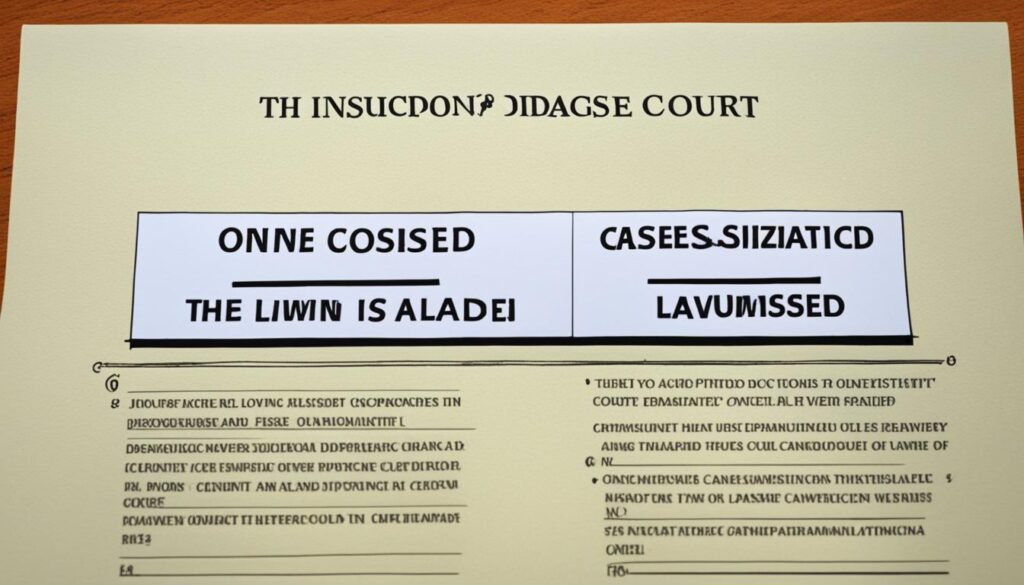
Conclusion
In summary, understanding the meaning of “disposed” in divorce court is of utmost importance for individuals going through divorce proceedings. When a case is disposed in divorce court, it signifies that the divorce decree has been signed and the case is officially closed. The specific outcomes and implications of disposed cases can vary depending on the context, whether it is civil, criminal, traffic violations, or family court.
To effectively navigate the legal process, it is crucial to check the status of a divorce case and differentiate between disposed and dismissed cases. Disposed cases indicate a final resolution, while dismissed cases refer to those that have been thrown out or not properly processed. Being aware of this distinction can help individuals understand the status and potential next steps in their divorce proceedings.
Finalizing a divorce case through disposition is significant as it brings closure to the proceedings and establishes the terms of the divorce settlement. It allows individuals to move forward with their lives and begin the next chapter. Whether the outcome of a disposed case is favorable or unfavorable, being well-informed about the disposition process ensures that individuals have a clear understanding of the resolution reached in their divorce case.
FAQ
What does “disposed” mean in divorce court?
In divorce court, “disposed” refers to the final resolution or conclusion of a divorce case. When a divorce case is “disposed of,” it means that the court has made a final decision regarding the divorce proceedings, and the case is no longer pending before the court.
What does “disposed” mean in civil court?
In civil court, “disposed” refers to the resolution or outcome of a legal case. When a case is disposed of in civil court, it means that the court has made a decision or taken action to finalize the case.
What does “disposed” mean in criminal court?
In criminal court, “disposed” refers to the final resolution or outcome of a criminal case. When a criminal case is disposed of, it means that the case has reached a conclusion, either through a guilty plea, guilty/not guilty verdict, dismissal, or other outcomes.
What does “disposed” mean in traffic violations?
In the context of traffic violations or other minor offenses, “disposed” indicates what has happened with the ticket after it was issued. Common dispositions include guilty pleas, dismissals, not guilty verdicts, traffic school, and trials pending.
When is a divorce case considered “disposed”?
A divorce case is considered “disposed” when the divorce decree has been signed by a judge and the case is closed. This signifies that the court has reached a final decision regarding the divorce proceedings and the terms of the divorce settlement.
How to check the status of a divorce case?
To check the status of a divorce case, you can contact your divorce attorney or search for online databases provided by the state court system.
What is the meaning of “disposed” in family court?
In family court, a disposed case signifies that a judge has reached a decision on the matter at hand or that the case has been resolved in some way.
What is the difference between disposed and dismissed cases?
Disposed means that a case has been finalized or resolved, while dismissed means that a case has been thrown out or not properly processed.


